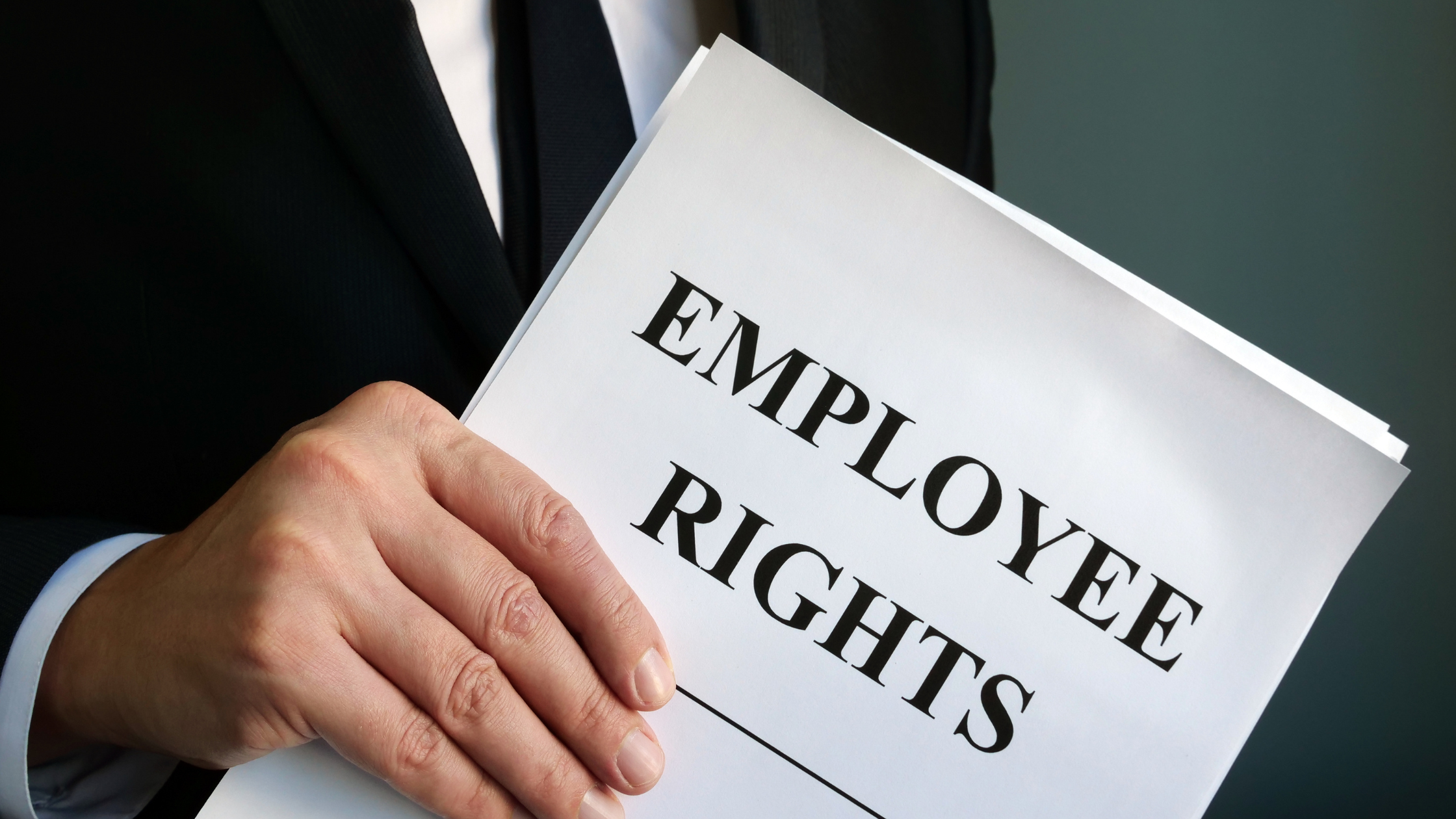Job Interviews can sometimes be a frightful thing. If you care about something so much, your brain can be overloaded with anxiety before participating in a job interview. So, it’s important you prepare as much as possible before entering an interview, and we’re here to help you!
On average, 118 people apply for a single job, where each job interview lasts between 45 and 90 minutes on average. It’s important you learn to fill this time with a great deal of preparation, so you can win over your interviewers, and beat the competition.
Want to know how to win an interviewer over? Follow our interviewing tips to increase your chances of landing a job.
Pre-Job Interview

Research the company
77% of recruiters said that they would reject a candidate who has little knowledge about the company they’re applying for – so make sure you’ve done the following things to be in for a chance!
- Research the company website – What do they do? How do they make money? What is their company culture?
- Search Google News for recent company affairs – Use this to your advantage during the job interview and topic of conversation
- Review the company’s social media accounts – Facebook, LinkedIn, Twitter, Instagram
- Read a company’s end of year report – can be filled with plenty of valuable information to help you understand more about the organisation
Research the industry
- Competitor research – investigate the company’s competition, understand why this company is different from its competitors, showing an in-depth understanding of the overall industry
- Locate industry surveys, overviews and reports – having general information about the overall industry to hand can be very useful
- Look into the industry’s main customers – understand more about the demographics of the organisation’s target customers
Understand your selling points
Our unique personal skills template provides you with the structure for you to sell yourself in a job interview. You can use this to try and win over an interviewer, just by listing desirable characteristics/skills which may be useful to apply for the job you’re applying for.
Try to get at least three or four desirable skills you have, use an example (the more recent the better) which supports your use of this skillset, and then show how you can apply this in the context of the job role you’re applying for.
Prepare for common questions
There are plenty of online sites which show common job interview questions you may be asked. Here is a list of some examples which may be used:
- Tell me about yourself.
- How did you hear about this position?
- Why do you want to work at this company?
- Why do you want this job?
- Why should we hire you?
- What can you bring to the company?
- What are your greatest strengths?
- What do you consider to be your weaknesses?
- What is your greatest professional achievement?
- Tell me about a challenge or conflict you’ve faced at work, and how you dealt with it.
- Tell me about a time you demonstrated leadership skills.
- Tell me about a time you failed.
- Why are you leaving your current job?
- What’s your current salary?
- What do you like least about your job?
- What are you looking for in a new position?
- What type of work environment do you prefer?
- What’s your work style?
- How do you deal with pressure or stressful situations?
- What do you like to do outside of work?
- How do you stay organised?
- How do you prioritise your work?
- What are you passionate about?
- What motivates you?
- Where do you see yourself in five years?
- What are your career aspirations?
- What other companies are you interviewing with?
- What are your salary expectations?
- When can you start?
- Do you have any questions for us?
Choose any question you feel you’re most likely to encounter during the interview, and plan how you would answer it. This will not only make you feel more comfortable when entering the interview, but it will also show the interviewer that you have had a lot of thought about your answers.
Ask plenty of questions
While there are plenty of questions which they may ask you in the job interview, make sure you come prepared with some questions of your own! Write down a list of questions before your job interview and take a note pad in with you to take notes. This demonstrates that you are keen to learn as much as possible about the company – showing initiative and the ability to listen. (Make sure you’re not looking at your notes too much when writing stuff down!!)
Here is a list of questions which may be useful to ask an interviewer:
- How long have you worked here?
- What do you enjoy most about your job?
- What does a typical day look like?
- Can you tell me more about the team I would be working with?
- Can you tell me more about the day-to-day responsibilities of the role?
- How could I impress you in the first three months?
- What are the opportunities for training and progression within the company?
- Where do you think the company is headed in the next five years?
- Can you describe the working culture of the company?
- What are the most immediate projects that need to be addressed?
- Can you show me examples of projects I’d be working on?
- What are the skills and experiences you’re looking for in an ideal candidate?
- What attributes does someone need to have in order to be really successful in this position?
- What types of skills is the team missing that you’re looking to fill with a new hire?
- What are the biggest challenges that someone in this position would face?
- What sort of budget would I be working with?
- Do you expect the main responsibilities for this position to change in the next six months to a year?
Ask the ones which you think will be the most impactful during your job interview – and don’t forget to take notes of the answers, it might be great to refer to after the job interview is finished!
During the Job Interview

Bring a copy of your CV to interview
This simple task shows an interviewer that you are organised. It can also be a useful tool for you to refer to when answering any questions.
Make a good first impression
You only have seven seconds to make a strong first impression. First impressions are everything. Most employers rank first impressions as the second most important factor when interviewing (behind work experience). So, to ensure that you make the best first impression, try to do the following:
- Show up on time
- Dress the part, as 71% of employers wouldn’t hire someone who doesn’t follow the appropriate dress code
- Be nice to the receptionist (a lot of companies ask their front desk attendants to report back to them about your attitude)
- Do not get your phone out at all! Instead, look at your resume and prepare your answers for the interview
- Introduce yourself first – be the first person to extend their hand out for a shake!
- Try finding a connection with the interviewer. Relating to the interviewer can certainly help your case if you can naturally associate with each other
Body language is important!
Body language can at times be more important than what you have to say! It shows a more honest side to yourself, and most of the time can help show your trustworthiness to an interviewer.
Stand up straight, maintain eye contact, give a firm handshake. These are the main body language attributes which can convey confidence, friendliness and professionalism. 67% of recruiters feel that eye contact is crucial to making a good impression, while 30% of hiring managers identify bad handshakes as a prominent reason why candidates may leave a bad impression.
Listen to the interviewer
All information is valuable, so listening is your tool to provide you with a major opportunity of knowing as much as possible about the job – it may give you leverage over the competition.
Observe your interviewer and match the pace and style at which they are leading the interview – listening intently shows your remarkable communication skills!
Don’t talk too much – silence isn’t a bad thing
Try not to speak to the interviewer too much, this could be a big mistake! Rambling too much may sometimes lose your chances of getting a job. Try to condense your sentences so they’re straight to the point and contain relevant information.
Silence can be a powerful tool. It gives us time to analyse what has just been said, and also offers us to prepare counterarguments. When we speak after a silent period, it can make our words more powerful, and remaining quiet for a moment after an interviewer has spoken can help create a calm atmosphere. Being silent can be a sign of confidence!
Use appropriate language
Try and use professional, well-articulated language. Do not use slang or references to age, race, religion, politics or sexual orientation – and definitely DO NOT swear!
Post-Job Interview

Follow-up with the interviewer
Your job interview has just ended, you either think it went great or you think it went bad. Regardless, send a follow up email to the interviewer with a summary of the points discussed in the interview, along with a thank you for them taking the time to meet with you. This demonstrates fantastic communication skills, and gratitude towards the interviewer.
We hope this helps!
Make sure you prepare as much as you can for your job interview, and try to stay calm! It’s not the end of the world if you’re not successful, but at least you know you tried your best.
Have any more tips on a job interview? Email us at info@rekkruut.com to let us know!
Thanks for reading, and don’t forget to subscribe to our RekkTalk Newsletter, visit our other RekkBlog posts, and follow us on Facebook and LinkedIn!



